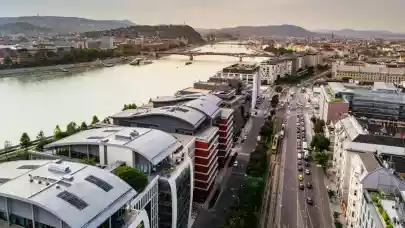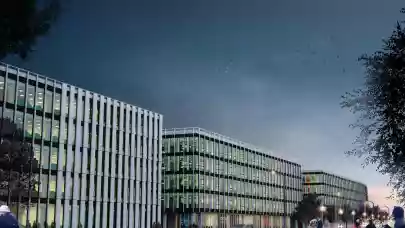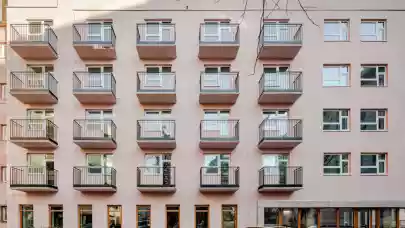
The sentiment of Hungarian real estate investors is becoming more and more optimistic, which is reflected in their continuously increasing willingness to invest, according to CBRE's survey. Offices are expected to remain the most traded asset type, but demand for alternative investment opportunities has increased significantly. The biggest challenges of the coming year may be pricing asymmetry between sellers and buyers, as well as a lack of stock for sale.
Investors are increasingly optimistic
CBRE recently published the insights of the Hungarian Investor Intentions Survey 2021, which provides a comprehensive picture of the investor side on the Hungarian real estate market. As a result of the reopening and ongoing economic recovery, investor sentiment is notably improving, with 63 percent of those surveyed being more optimistic than they were half a year ago. This is also reflected in their willingness to invest, as half of the respondents are looking to increase their investment volume to pre-COVID levels, while 30 percent of them would increase their deployment even above the 2019 level.
Among other factors, this optimism can be attributed to the fact that the Hungarian economy is expected to recover faster than the Western European region. Although the real estate investment market is not expected to recover as swiftly, investors are expecting this year’s turnover volume to be between €1.1 billion and €1.3 billion, which could increase to €1.7 billion by 2022 - in contrast to last year’s total volume of €1 billion.
Office market leads, but increasing demand for alternative asset types
Even though industrial and logistics assets have become significantly more popular the office segment is set to remain the most attractive investment target in Europe in 2021, and the Hungarian statistics are in line with this trend. However, while offices are still the dominant asset class in Hungary, the outsized advantage seems to be narrowing looking ahead: 38 percent would invest in offices today compared to 58 percent in 2019. Following last year’s uptick, the willingness to invest in industrial real estate has also declined slightly this year, as more investors express interest in alternative asset types: 26 percent of respondents would invest in hotels and rental housing, an increase of 16 percent from two years ago.
Domestic investors are still dominant on the Hungarian real estate market, strongly driven by the travel restrictions caused by the COVID-19 pandemic. In the early months of 2021, domestic investors had a 100% market share, yet foreign investors are expected to increase their share as restrictions are lifted. Nevertheless, market participants expect domestic capital to remain dominant.
Pricing expectations post-COVID
In terms of pricing, investors expect a diverging trend for retail and industrial assets. Unsurprisingly - and in line with global trends - the local investor community also expects increasing pricing of logistics properties, as a consequence of the steady decline in the risk premium (and thus expected returns) on these properties. According to the Hungarian Investor Intentions Survey 2021, the prime yield of industrial real estate is expected to decrease from today’s 6.75% to 6.22% in a year – 31% of investors would be willing to bid above the offer price for such properties. The situation is reversed in the case of retail, as most investors expect a discount compared to pre-COVID times, especially amongst downtown retail assets – according to the surveyed investors, the prime yield in the latter could rise from the current 5.50%to over 6%. Whether these expectations will hold true is up to the market, but based on the survey, the biggest challenge in the post-COVID era will be the pricing asymmetry between sellers and buyers (according to 69% of respondents), closely followed by the shortage of available assets for sale (according to 57% of respondents).
The sales side is becoming also more active – however, disposal willingness is clearly weaker as 30% does not want to sell real estate this year at all, supposedly due to the lack of alternative investment opportunities, explained Gábor Borbély, Head of Research & Business Development of CBRE. “Investors feel this might lead to a shortage of products and a clear mismatch in pricing expectations between the parties – as these were labelled as the biggest market risk for the next 12 months by the majority of investors asked.



